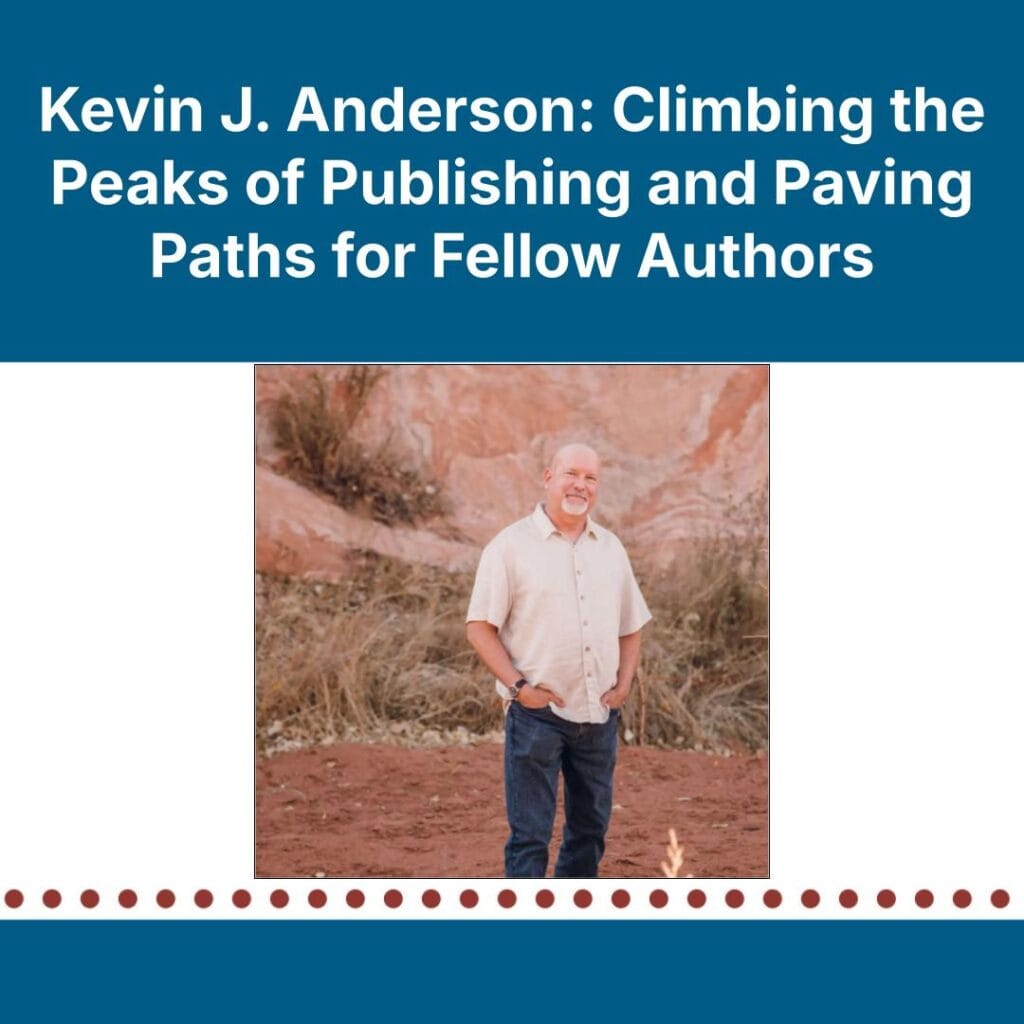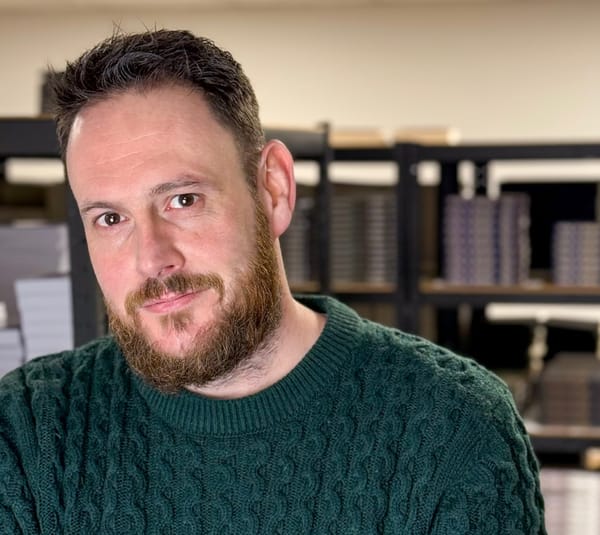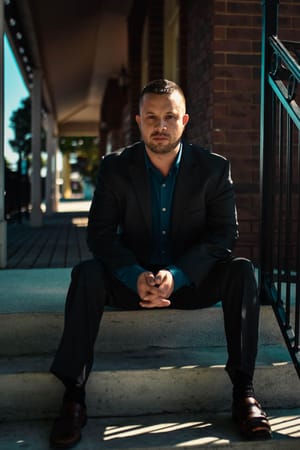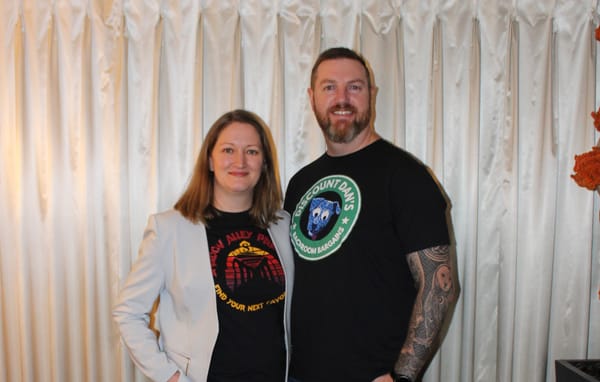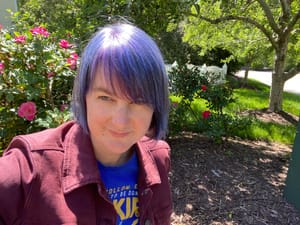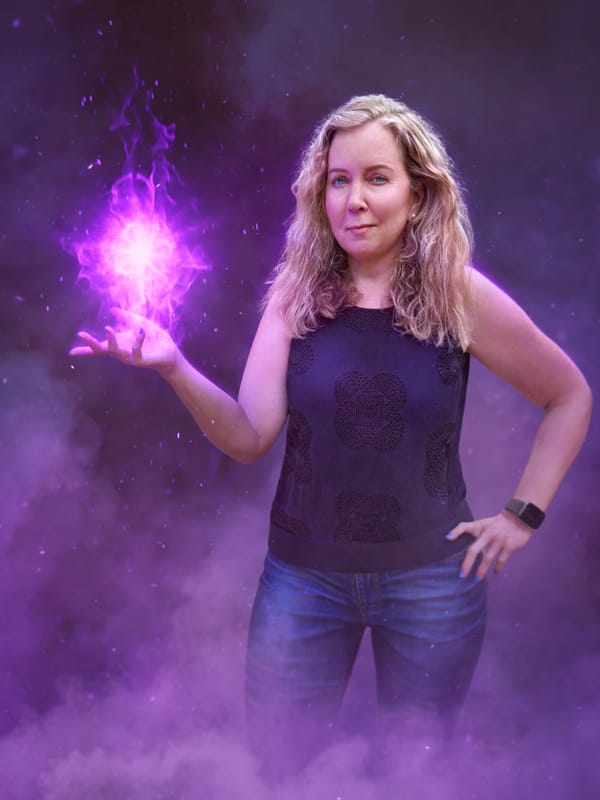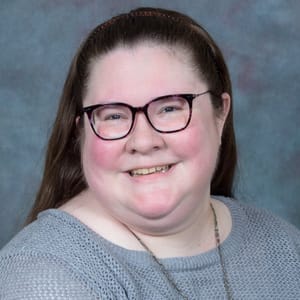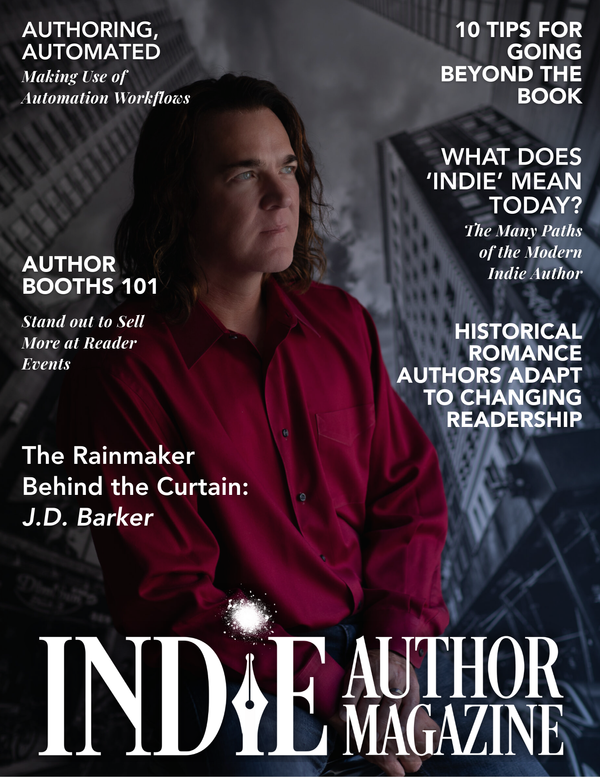At dawn, somewhere in the Colorado Rockies, Kevin J. Anderson is already climbing, his voice carrying stories into a digital recorder as he hikes. This is where bestsellers are born. With over 180 published novels, including bestsellers in the Dune and Star Wars universes, his work has reached millions of readers worldwide. But what makes Anderson truly remarkable isn't just his prolific output—it’s his genuine enthusiasm for helping others navigate the complex world of publishing.
Anderson’s influence extends beyond the page. As co-publisher of WordFire Press and co-founder of the Superstars Writing Seminar, he has become a mentor and leader in the writing community. Most recently, Anderson has channeled his passion for teaching into an industry-leading master’s program in publishing at Western Colorado University. With a focus on both traditional and indie publishing, the program equips students with the tools they need to succeed in an industry that demands versatility and resilience.
In person, Anderson carries his success lightly. When he recently spotted his name on a billboard for Dune: Prophecy—the new MAX series born from novels he co-authored—he shared the photo with the delighted amazement of someone still not quite believing his good fortune. His social media presence reflects this same authenticity: Rather than a consistent stream of self-promotion, you’ll find him celebrating colleagues’ achievements and offering encouragement to emerging writers. This sincerity has earned him not just readers but also a community of authors who view him as both mentor and friend.
The Popcorn Theory of Success
Anderson describes his career using what he calls “The Popcorn Theory”—a philosophy that success comes from planting countless kernels of opportunity and allowing them to develop in unexpected ways. “You plant as many seeds as you can,” Anderson explains, “because you never know which one will sprout.”
The roots of this approach trace back to a five-year-old boy in small-town Wisconsin, where young Kevin, inspired by War of the Worlds, began crafting his own tales of adventure. He wrote his first novel on a typewriter at age eight and began submitting short stories to magazines as a preteen. Even as rejection letters piled up, he meticulously tracked each one in a ledger and kept submitting, confident that the next attempt could be his first “pop.” This unrelenting determination eventually led to his first novel sale at 25, setting the stage for his prolific career.
But Anderson’s real breakthrough came unexpectedly. After years of steadily building his reputation for reliable, quality work, Anderson received a call from Bantam Books offering him the chance to write for the Star Wars universe. It wasn’t an opportunity he’d actively pursued—rather, it was the result of consistently delivering manuscripts on time and building strong relationships with editors. The Jedi Academy trilogy became a massive success, and suddenly Anderson’s kernels began popping faster than he could have imagined. Opportunities with The X-Files, Dune, and other franchises followed, each success building on the last.
Stories Written on the Trail
Perhaps the most distinctive aspect of Anderson’s creative process is his unique approach to writing. While many authors are tethered to their desks, Anderson composes his novels while hiking the trails of Colorado. This isn’t just an occasional practice—it’s his primary writing method, one that has helped him produce thousands of pages while summiting every 14,000-foot peak in his adopted state.
Equipped with a digital recorder, Anderson plots chapters in his mind before heading out, then lets the words flow as he walks. “There’s something about moving through nature that unlocks creativity,” he explains. “The rhythm of walking aligns perfectly with the rhythm of storytelling.” The sensory experiences of his hikes—the crunch of snow underfoot, the whisper of wind across desert dunes—often find their way into his narratives, adding vivid texture to his scenes.
As I write this article, I find myself in the same Sierra Nevada mountains that inspired Anderson’s dictation of the Ice Planet Hoth. It feels surreal to picture him hiking through this snow-covered landscape, recording scenes for Star Wars. His method seems to bridge the gap between his surroundings and the fictional worlds he builds—a technique that makes his stories all the more vivid.
Dictation also keeps Anderson connected to the joy of storytelling. “I’m in the zone,” he says, noting how this process allows him to focus purely on the story without the distractions of punctuation or formatting. His typist—a human first reader—handles the technicalities, often catching repeated ideas or inconsistencies.
Of course, this unconventional method has led to some amusing situations as well. His long-time transcriptionist jokes about decoding what sound like “obscene phone calls” due to the heavy breathing captured during steep climbs. But the results are undeniable: Anderson regularly produces upwards of one thousand words per hour during these walking sessions, and his collaborative rhythm, born from years of practice, ensures that Anderson’s stories flow naturally from his mind to the page.
Creative Collaborations and New Frontiers
Of course, “the page” is just an expression; Anderson has never been content to confine his stories to one medium. One of Anderson’s most meaningful projects emerged from his friendship with Neil Peart, the legendary drummer of Rush. Their collaboration on the Clockwork Angels series demonstrated Anderson’s gift for working across creative boundaries. Peart would send song lyrics and character concepts, which Anderson transformed into rich narratives that complemented Rush’s music. After Peart’s passing, Anderson took on the emotional task of completing their final collaboration, Clockwork Destiny—a project that became both a tribute to their friendship and a gift to their shared fans.
Anderson’s innovative spirit extends to his embrace of new publishing models. When he launched his first Kickstarter campaign for a Dan Shamble, Zombie P.I. novel, he was amazed to raise triple the advance he’d previously received from traditional publishers. This success opened his eyes to the power of direct reader connections. He’s since run multiple successful campaigns, each one strengthening his relationship with his audience.
Audiobooks are another area where Anderson has taken the reins. When early narrations of his Dan Shamble series didn’t capture the humor he’d intended, Anderson took matters into his own hands. He reclaimed the rights and recorded the books himself, bringing his natural comedic timing and enthusiasm directly to listeners. This hands-on approach typifies Anderson’s philosophy: If something isn’t working, find a way to fix it yourself.
One of Anderson’s longest and most impactful collaborations, however, also seems the most obvious: that with his fellow publisher and co-founder of WordFire Press, Rebecca Moesta—Anderson’s wife. The two started WordFire Press in 2009, first publishing a religious book from Moesta’s father as a gift to him. Then, they began publishing ebooks of Anderson’s out-of-print novels, a venture Anderson admits he felt skeptical about at the time. “Ebooks had never managed to take off, but these came out right when the boom was starting,” he writes. The press expanded with more of Anderson’s former titles and then with books published by Anderson’s friends until it boasted the nearly four hundred titles and one hundred fifty authors it does today.
The press has scaled back more recently to focus on Anderson’s work, namely meeting the demands of Anderson’s Kickstarter campaigns. The task is no small feat, but it’s an admission Anderson makes proudly. “That’s what it’s all about—pushing the envelope and doing new and exciting things,” he writes.
Creating a Writing Family
Anderson’s collaborations with his wife—and the duo’s penchant for paving new roads in publishing—don’t stop at WordFire Press. The Superstars Writing Seminar, which Anderson and Moesta co-founded alongside authors Brandon Sanderson, Dave Wolverton, and Eric Flint, stands apart from typical writing conferences. Unlike many conferences that focus solely on craft, Superstars emphasizes the business side of writing, offering insights into marketing strategies, contract negotiation, navigating publishing platforms, and more. At the same time, the atmosphere feels more like a family reunion of literary heavyweights—walk into any session, and you might find Sanderson chatting casually with new writers, or established authors openly sharing their marketing strategies. “This isn’t about protecting trade secrets,” Anderson explains. “It’s about lifting everyone up.”
This collaborative spirit manifests in tangible ways. The conference’s charity auction has funded thirty-three scholarships since its inception, breaking down financial barriers for emerging writers. What began with sixty-three attendees in Pasadena has grown to nearly four hundred participants across six programming tracks, yet it somehow maintains the warmth it’s carried from the start. “Writing can feel isolating,” Anderson says. “But when you’re here, you know you’re part of something bigger.”
Anderson’s commitment to education has found another home at Western Colorado University, where he directs the publishing concentration within the graduate creative writing program. The thirteen-month curriculum reflects his practical, hands-on approach: Students publish both an anthology and a reissued classic, experiencing every aspect of the publishing process from acquisition to marketing.
Anderson’s vision for the program goes beyond technical skills. He believes in fostering collaboration among students and building a sense of community, much like at his Superstars Writing Seminar. “You’re grounded in the formal aspects of publishing, but you also get hands-on experience and a cohort of support,” he says. The program also attracts a diverse range of students, from indie authors seeking to elevate their craft to traditional publishing veterans eager to learn self-publishing strategies. The program’s funding structure epitomizes Anderson’s pay-it-forward philosophy. Projects published through WordFire Press, with support from Draft2Digital, help fund scholarships for future students.
Navigating Publishing’s Future
Having witnessed seismic shifts in publishing over his career, Anderson maintains an optimistic view of the industry’s future. Although he acknowledges challenges like the decline of physical bookstores and the emergence of AI, he sees unprecedented opportunities for authors willing to adapt.
“Every successful indie author will become a cottage industry,” he predicts, emphasizing the growing importance of direct reader relationships. His own career demonstrates this evolution—from traditional publishing to hybrid approaches incorporating crowdfunding, direct sales, and innovative marketing strategies.
Anderson also sees generative AI as a looming presence in the industry. Although he acknowledges its potential, he believes readers crave humanity—the artisanal touch of an author who has poured their passion into their work. “I’ve built a real rapport with my fans over the years,” he says. “They’ll keep buying Kevin Anderson books because they know they’re getting something genuine.”
Anderson particularly celebrates the creative freedom today’s publishing landscape offers. “If you want to write Vampire Steampunk Romance with a submarine captain,” he says with characteristic enthusiasm, “there’s a reader out there for you.” This optimism, grounded in decades of experience, makes his perspective particularly valuable for authors navigating today’s complex market.
Lessons from the Summit
Anderson’s career is a masterclass in resilience, creativity, and adaptability—qualities every indie author can emulate. From his early days meticulously tracking rejection letters to his current ventures into Kickstarter and transmedia storytelling, Anderson has demonstrated that success comes from a mix of hard work, strategic thinking, and a willingness to evolve. For him, every new project is another kernel of potential, waiting to pop in its own unique way.
But perhaps the most inspiring lesson is Anderson’s belief in the power of community. “You’re not alone,” he reminds authors. In an industry often marked by competition and gatekeeping, Anderson stands as a reminder that generosity and authenticity can be powerful forces for success. His legacy won’t just be measured in books sold or worlds created but in the countless writers he’s inspired to pursue their own unique paths through the publishing landscape.

